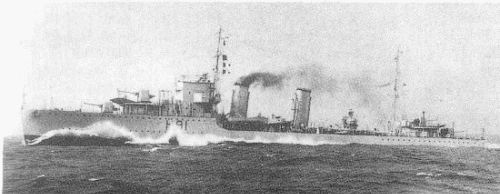
NAVYPEDIA
 Support the project with paypal
Support the project with paypal
Photo

Bulldog 1931
Ships
| Name | No | Yard No | Builder | Laid down | Launched | Comp | Fate | Modification |
|---|---|---|---|---|---|---|---|---|
| Acasta | H09 | John Brown, Clydebank | 8/1928 | 8.8.1929 | 2/1930 | sunk 8.6.1940 | "A" group | |
| Achates | H12 | John Brown, Clydebank | 9/1928 | 4.10.1929 | 3/1930 | sunk 31.12.1942 | "A" group | |
| Acheron | H45 | Thornycroft, Woolston | 10/1928 | 18.3.1930 | 10/1931 | sunk 17.12.1940 | "A" group | |
| Active | H14 | Hawthorn Leslie, Hebburn | 7/1928 | 9.7.1929 | 2/1930 | BU 7.1947 | "A" group | |
| Antelope | H36 | Hawthorn Leslie, Hebburn | 7/1928 | 27.7.1929 | 3/1930 | BU 1.1946 | "A" group | |
| Anthony | H40 | Scotts, Greenock | 7/1928 | 24.4.1929 | 2/1930 | BU 2.1948 | "A" group | |
| Ardent | H41 | Scotts, Greenock | 7/1928 | 26.6.1929 | 4/1930 | sunk 8.6.1940 | "A" group | |
| Arrow | H42 | Vickers-Armstrong, Barrow | 8/1928 | 22.8.1929 | 4/1930 | damaged 4.8.1943, never repaired | "A" group | |
| Keith | D06 | Vickers-Armstrong, Barrow | 10/1929 | 10.7.1930 | 6/1931 | sunk 1.6.1940 | "B" group | |
| Basilisk | H11 | John Brown, Clydebank | 8/1929 | 6.8.1930 | 3/1931 | sunk 1.6.1940 | "B" group | |
| Beagle | H30 | John Brown, Clydebank | 10/1929 | 26.9.1930 | 4/1931 | BU 1.1946 | "B" group | |
| Blanche | H47 | Hawthorn Leslie, Hebburn | 7/1929 | 29.5.1930 | 2/1931 | sunk 13.11.1939 | "B" group | |
| Boadicea | H65 | Hawthorn Leslie, Hebburn | 7/1929 | 23.9.1930 | 4/1931 | sunk 13.6.1944 | "B" group | |
| Boreas | H77 | Palmers, Jarrow | 7/1929 | 18.7.1930 | 2/1931 | to Greece 4.1944 (Σαλαμίς [Salamis]) | "B" group | |
| Brazen | H80 | Palmers, Jarrow | 7/1929 | 25.7.1930 | 4/1931 | sunk 20.7.1940 | "B" group | |
| Brilliant | H84 | Swan Hunter, Wallsend | 7/1929 | 9.10.1930 | 2/1931 | BU 8.1947 | "B" group | |
| Bulldog | H91 | Swan Hunter, Wallsend | 8/1929 | 6.12.1930 | 4/1931 | BU 1.1946 | "B" group | |
| Saguenay (RCN) | D79 | Thornycroft, Woolston | 9.1929 | 11.7.1930 | 5.1931 | collision 15.12.1942, then TS | RCN "A" group | |
| Skeena (RCN) | D59 | Thornycroft, Woolston | 10.1929 | 10.10.1930 | 6.1931 | wrecked 25.10.1944 | RCN "A" group |
Technical data
| Max speed, kts, kn | 35.25 Saguenay, Skeena: 35 |
|---|---|
| Displacement standard, t | 1337 - 1360 Keith: 1400 |
| Displacement full, t | 1747 - 1815 (Keith 1821) (later 1930 - 1990) |
| Length, m | 95.1 pp 98.5 oa Saguenay, Skeena: 94.2 pp 97.5 oa |
| Breadth, m | 9.83 Saguenay, Skeena: 9.91 |
| Draught, m | 3.73 (later 3,86 - 3,99) deep load |
| No of shafts | 2 |
| Machinery | 2 sets Parsons geared steam turbines, 3 Admiralty 3-drum boilers Acasta, Achates, Basilisk, Beagle: 2 sets Brown-Curtis geared steam turbines, 3 Admiralty 3-drum boilers Anthony, Ardent: 2 sets Parsons geared steam turbines, 3 Yarrow boilers Acheron, Saguenay, Skeena: 2 sets Parsons geared steam turbines, 3 Thornycroft boilers |
| Power, h. p. | 34000 Saguenay, Skeena: 32000 |
| Fuel, t | oil 380 |
| Endurance, nm(kts) | "A", "B": 4800(15) Saguenay, Skeena: 5000(15) |
| Armament | "A", Saguenay, Skeena: 4 x 1 - 120/45 QF Mk IX, 2 x 1 - 40/39 2pdr QF Mk II, 2 x 4 - 533 TT, 3 DCR (6 DC), mechanical minesweeping gear "B", Keith: 4 x 1 - 120/45 QF Mk IX, 2 x 1 - 40/39 2pdr QF Mk II, 2 x 4 - 533 TT, 2 DCT, 1 DCR (20 DC) |
| Electronic equipment | "B", Keith: type 119 sonar |
| Complement | 138 Keith: 175 |
Standard scale images

Brazen 1940

Skeena 1941

Achates 1942
Graphics
Project history
They were built under 1927 ("A") and 1928 ("B") Programmes. The design had been developed on the basis of experimental Amazon. Because of very high requirements to the endurance the initial variant has appeared unduly big (as well as corresponding leader design), total displacement should exceed 2200t, that Admiralty recognised as unacceptable. The task on range of a course was lowered, but simultaneously semi-automatic 120mm guns and quadruple TTs were appeared. In connection with appearing of the minesweeping equipment it was necessary to shrink considerably anti-submarine armaments: ships have not received sonar though it figured in the initial design.
The architecture and hull dimensions differed from prototype (Amazon) a little, the truth, the increased armament weight (135t against 91) has caused hull breadth increase. Besides, for decreasing of splashing, their bridges have moved aft by some metres. Engine was less power and simultaneously more simple: only Acheron had high-pressure boilers. Though machinery with these boilers has shown on a quarter the best endurance, because of complexity in service and low reliability these boilers have refused on serial destroyers.
Ships of 1928 Programme differed from "A" class only by strengthened ASW armament at the expense of removing of minesweeping equipment (though on a design stage it was supposed to keep it, simultaneously replace quadruple TTs by quintuple at the expense of reduction of main guns number from four to three).
Unlike the 1927 Programme which leader (Codrington) notably exceeded the destroyers in the dimensions, Keith (the leader of the 1928 Programme) practically did not differ from her flotilla destroyers. It was necessary to decrease number of main guns (3 under the original design, already after ordering this lack had removed, and there was a fourth gun) and with absence of a sufficient place for all headquarters of a flotilia for what it was necessary to arrange one destroyer (Blanche) as the half-flotilla leader.
Besides 16 ships for the Royal Navy two more were built under Canadian order. The design had been developed on the basis of "A" class destroyer, but with a number of the changes dictated by specificity of possible service both in Northern Atlantic, and in subtropics. The hull was ice-strengthened and became wider, that allowed to carry on an upper deck and superstructures up to 50-60t of ice without risk of stability loss. In comparison with standard destroyers of the Royal Navy, the superstructure has received more covered form.
Modernizations
second half of 1940, Acasta, Achates, Acheron, Active, Antelope, Anthony, Ardent, Arrow, Saguenay, Skeena: - 1 x 4 - 533 TT, 2 DCR; + 1 x 1 - 76/45 QF Mk I/II/III/IV, 2 DCT (20 - 40 DC totally)
second half of 1940, Beagle, Boadicea, Boreas, Brilliant, Bulldog: - 1 x 4 - 533 TT; + 1 x 1 - 76/45 QF Mk I/II/V
1940, survived 'A' group: + type 128 sonar
late 1940 - late 1941, Active, Antelope, Anthony, Arrow, Beagle, Boadicea, Boreas, Brilliant, Bulldog, Saguenay, Skeena: - 1 x 1 - 120/45; + 2 DCT (70 DC totally)
late 1941, Anthony, Arrow: - 1 x 1 - 76/45; + 1 x 4 - 533 TT
late 1941 - early 1942, all survived: + 2 x 1 - 20/70 Oerlikon Mk II/IV
1941 - 1944, almost all except Skeena: + type 271, type 286 or type 291 radars
1942, Achates: - 1 x 1 - 120/45, 2 x 1 - 40/39, type 128 sonar; + 2 x 1 - 20/70 Oerlikon Mk II/IV, 1 x 24 - 178 Hedgehog ASWRL, DC stowage increased up to 125, type 144 sonar
1942, Skeena: + SW1C radar
1942 - 1943, Active, Skeena, Saguenay: - 2 x 1 - 40/39; + 2 x 1 - 20/70 Oerlikon Mk II/IV, DC stowage increased up to 125 pcs.
1942 - 1943, Anthony, Arrow, Beagle, Boreas, Brilliant, Bulldog, Boadicea: - 2 x 1 - 40/39; + 2 x 2 - 20/70 Oerlikon Mk II/IV, DC stowage increased up to 125 pcs.
1943, Anthony: - 1 x 4 - 533 TT
1943, Active, Antelope: - 1 x 1 - 76/45; + 2 x 2 - 20/70 Oerlikon Mk II/IV
1943, Beagle, Bulldog: - 1 x 1 - 120/45, 1 x 1 - 76/45, type 119 sonar; + 1 x 24 - 178 Hedgehog ASWRL, type 144 sonar
1944, Active, Anthony, Antelope: - 1 x 1 - 120/45, type 128 sonar; + 2 x 1 - 57/40 6pdr Hotchkiss Mk I, 1 x 24 - 178 Hedgehog ASWRL, type 144 sonar
1944, Skeena: - 1 x 1 - 120/45, type 128 sonar; + 2 x 1 - 20/70 Oerlikon Mk II/IV, 1 x 24 - 178 Hedgehog ASWRL, type 144 sonar
1944, Bulldog: + 1 x 1 - 40/39 2pdr QF Mk VIII
1/1946, Active: 2 x 1 - 120/45 CP Mk XIV, 2 x 1 - 57/40 Mk VI, 2 x 2 - 20/70 Mk V, 4 x 1 - 20/70 Mk III, 1 x 4 - 533 TT, 1 x 24 - 178 Hedgehog ASWRL, 4 DCT, 1 DCR (125), type 271, type 291 radars, type 144 sonar
1/1946, Antelope: 2 x 1 - 120/45 CP Mk XIV, 2 x 1 - 57/40 Mk VI, 2 x 1 - 40/39 HA Mk II, 2 x 2 - 20/70 Mk V, 2 x 1 - 20/70 Mk III, 1 x 4 - 533 TT, 1 x 24 - 178 Hedgehog AWSRL, 4 DCT, 1 DCR (70), type 271, type 291 radars, type 144 sonar
1/1946, Anthony: 2 x 1 - 120/45 CP Mk XIV, 2 x 1 - 57/40 Mk VI, 2 x 2 - 20/70 Mk V, 2 x 1 - 20/70 Mk III, 1 x 4 - 533 TT, 1 x 24 - 178 Hedgehog ASWRL, 4 DCT, 1 DCR (125), type 271, type 291 radars, type 144 sonar
1/1946, Beagle: 2 x 1 - 120/45 CP Mk XIV, 2 x 2 - 20/70 Mk V, 2 x 1 - 20/70 Mk III, 1 x 4 - 533 TT, 1 x 24 - 178 Hedgehog ASWRL, 4 DCT, 1 DCR (125), type 271, type 291 radars, type 144 sonar
1/1946, Brilliant: 3 x 1 - 120/45 CP Mk XIV, 1 x 1 - 76/45 Mk II, 2 x 2 - 20/70 Mk V, 2 x 1 - 20/70 Mk III, 1 x 4 - 533 TT, 4 DCT, 1 DCR (125), type 271, type 291 radars, type 119 sonar
1/1946, Bulldog: 2 x 1 - 120/45 CP Mk XIV, 1 x 1 - 40/39 Mk VIII, 2 x 2 - 20/70 Mk V, 2 x 1 - 20/70 Mk III, 1 x 4 - 533 TT, 1 x 24 - 178 Hedgehog ASWRL, 4 DCT, 1 DCR (125), type 271, type 291 radars, type 144 sonar
Naval service
Blanche 13.11.1939 was stricken by German mine in a mouth of the Thames and sunk. Basilisk 1.6.1940 was badly damaged by German Ju 87 bombers at Dunkirk, she was abandoned by crew and sunk by destroyer Whitehall. Keith 1.6.1940 was sunk by German bombers at Dunkirk. Acasta and Ardent 8.6.1940 were sunk by gunfire of German battlecruisers Scharnhorst and Gneisenau in 300nm W of Tromso. During battle Ardent achieved torpedo hit to Scharnhorst and badly damaged her. Boadicea 10.6.1940 was badly damaged in La Manche by direct hits of two 500kg bombs, repaired till the end of year; she was sunk 13.6.1944 by two German air torpedoes from Ju 88 bomber in 12nm SW of Portland. Brazen 20.7.1940 was badly damaged by German Ju 87 bombers in Strait of Dover and sunk under tow. Acheron 28.8.1940 was badly damaged by air bomb direct hit in harbour of Portsmouth; the stern was destroyed, repair lasted to the middle of December, 1940; she was mined during sea trails after repair 17.12.1940 and sunk in La Manche.
Achates 31.12.1942 was sunk by artillery of German cruiser Admiral Hipper N of Nordkap. Arrow was badly damaged 4.8.1943 at Algiers as a result of explosion of French amunition ship Fort La Montee laying nearby and was not repaired. Boreas 25.7.1940 was badly damaged by an air bomb direct hit in La Manche, one boiler room was destroyed, ship repaired 4 months. Saguenay 1.12.1940 was damaged by torpedo from Italian submarine Argo in Northern Atlantic; she was repeatedly damaged in November, 1942 in collision with s/s Azara off Newfoundland; partially repaired, but used only as TS. Skeena wrecked in a mist in Hval-fiord 25.10.1944.
 HOME
HOME FIGHTING SHIPS OF THE WORLD
FIGHTING SHIPS OF THE WORLD UNITED KINGDOM
UNITED KINGDOM TORPEDO SHIPS
TORPEDO SHIPS "A" and "B" destroyers (ANTHONY) (19, 1930 - 1931)
"A" and "B" destroyers (ANTHONY) (19, 1930 - 1931)
